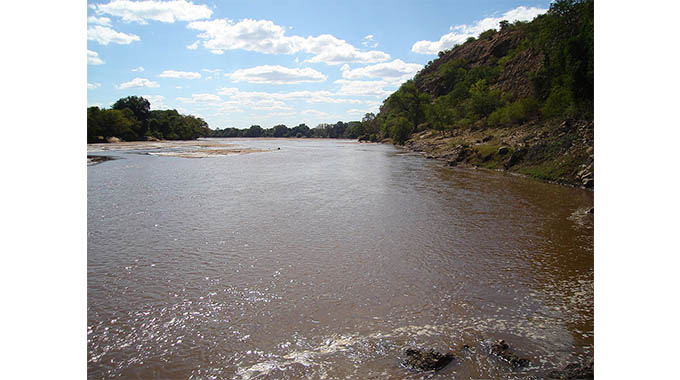
Midlands Bureau Chief
The national dam level has risen to over 79 percent following incessant rains that have been pounding the country.
According to the weekly update from the Zimbabwe National Water Authority, the current wet spell being experienced in most parts of the country continues to push dam levels up.
“The national dam level average now at 79,7 percent as at January 25, 2021. Between January 25, 2021 and September 28, 2020, the national dam level average has risen by 48,87 percent, a development that significantly boosts water security for urban centres, rural communities and the upcoming 2021 winter cropping season,” reads a statement from Zinwa corporate communications and marketing officer Mr Tsungirirai Shoriwa.
He said in terms of catchments, Sanyati Catchment has the highest dam level average of 100,2 percent meaning almost every dam in that catchment is now full and spilling.
Mr Shoriwa said Gwayi Catchment has a dam level average of 98,5 percent.
“Runde Catchment is 86 percent, Mzingwane Catchment 78,2 percent, Save Catchment 67,1 percent, Manyame Catchment 66,7 percent and Mazowe Catchment 51,2 percent,” he said.
Mr Shoriwa said the country’s largest inland water body, Tugwi-Mukosi Dam, for the first time since its commissioning in 2017 has filled up and is spilling. He said other dams that are spilling include Manyuchi, Sebakwe, Muzhwi, Zhovhe, Mutange, Nerutanga, Roswa, Small Bridge, Odzani, Bubi-Lupane, Insukamini, Pollards, Exchange and Gwenoro.
“Communities living downstream of the spilling dams are advised to be on high alert for floods and ensure that they do not attempt to cross flooded rivers and also ensure that any irrigation or other water abstraction equipment along the rivers is appropriately secured or removed,” he said.
Mr Shoriwa said while the improvement in dam water levels is a welcome development, the Zinwa continues to appeal to all water users across the board to use the available water very sparingly.
“All those intending to use raw water from Zinwa managed dams are advised to ensure that their water use is in terms of water abstraction agreements as required by the Water Act,” he said.
Mr Shoriwa said any water use for purposes other than primary purposes, without a water abstraction agreement constitutes an offence and offenders are liable to prosecution.
